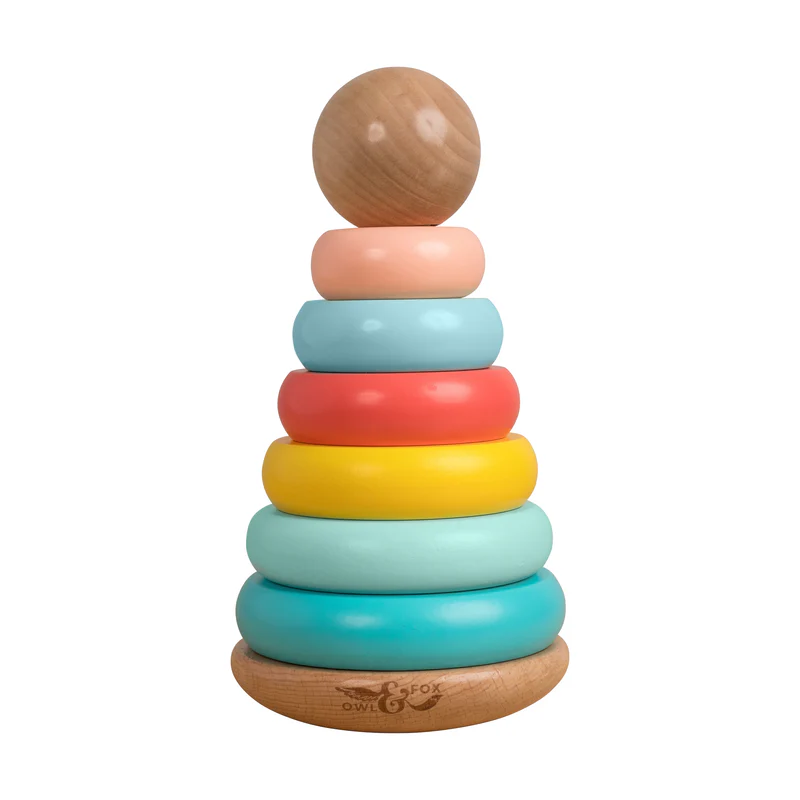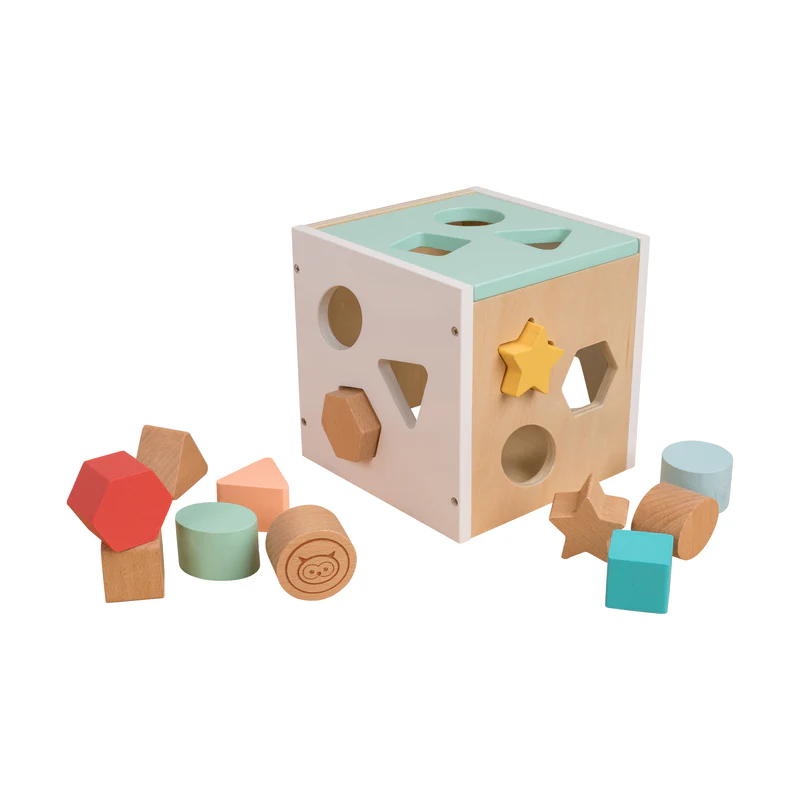Beyond Fun: How Educational Toys Can Shape Your Child’s Future
#Collaborative post
In today’s fast-paced world, where technology and gadgets dominate children’s lives, it’s easy to overlook the value of traditional, well-crafted educational toys. Yet, these timeless tools of learning and play have a profound impact on a child’s development. Among the most beloved and beneficial options are the wooden stacking toy and the wooden shape sorter. These simple yet powerful toys provide children with more than just amusement—they lay the foundation for critical skills that will shape their futures.

The Importance of Educational Toys
Educational toys are designed with a purpose: to stimulate learning through play. Unlike standard toys, which might prioritise entertainment, educational toys combine fun with opportunities to develop essential skills such as problem-solving, hand-eye coordination, and social interaction. When children play with toys like a wooden stacking toy, they are not merely stacking pieces; they are exploring concepts of balance, gravity, and spatial awareness. Similarly, a wooden shape sorter engages their problem-solving abilities as they figure out how to fit the right shapes into their respective slots.
By offering opportunities for hands-on exploration, these toys encourage children to think critically, experiment, and make sense of the world around them—all while having fun. In doing so, they not only entertain but also educate, providing an invaluable stepping stone for cognitive, emotional, and physical development.
Cognitive Benefits of Toys like the Wooden Stacking Toy
Cognition refers to the mental processes involved in acquiring knowledge and understanding. For young children, these processes are still developing, and the right toys can make all the difference. Take the wooden stacking toy, for instance. At first glance, it might seem like a simple activity: stacking one wooden block atop another. However, this task requires a surprising amount of thought and precision.
Children must figure out which pieces fit together best, how to prevent the tower from toppling, and how to balance their design—all of which challenge their problem-solving and reasoning abilities. As they stack, they are also learning about size differentiation, sequencing, and patterns. These activities not only improve memory and focus but also encourage children to think creatively and strategically.
Problem-Solving Skills Through the Wooden Shape Sorter
Few toys offer the sheer problem-solving potential of a wooden shape sorter. Its design—a box or board with cut-out shapes and corresponding wooden pieces—is deceptively simple. However, for a young child, determining which piece goes where is a complex puzzle that tests their analytical skills.
Through trial and error, children learn to identify shapes, match them to their corresponding slots, and insert them correctly. This activity teaches persistence, patience, and the ability to adapt when their initial approach doesn’t work. It also reinforces spatial awareness, as children must understand how the shapes relate to one another and the space around them. Over time, these problem-solving experiences help build a strong foundation for critical thinking, an invaluable skill they will carry into adulthood.
Physical Development: Fine Motor Skills and Coordination
Both the wooden stacking toy and the wooden shape sorter play a significant role in developing fine motor skills. Fine motor skills involve the small muscles in the hands and fingers, which are essential for tasks such as writing, buttoning clothes, and tying shoelaces.
When children manipulate the pieces of a stacking toy or fit shapes into a sorter, they are practising the precision and control required for these tasks. They also improve hand-eye coordination, as their eyes guide their hands to place blocks carefully or align a shape with its slot. This physical development lays the groundwork for more complex activities later in life, from drawing and painting to playing a musical instrument.
Emotional and Social Growth Through Play
Beyond cognitive and physical development, educational toys also contribute to emotional and social growth. Play is a natural way for children to express themselves, explore their emotions, and build relationships. For example, using a wooden stacking toy or wooden shape sorter can be a collaborative activity. Siblings or friends might work together to build a tall tower or sort shapes as a team, learning to communicate, share, and take turns in the process.
These experiences foster important social skills such as cooperation and empathy. At the same time, they help children build confidence and self-esteem. Successfully completing a stacking challenge or solving a shape puzzle provides a sense of accomplishment, encouraging children to tackle new challenges with enthusiasm and resilience.
Why Choose Wooden Toys?
In a world overflowing with plastic and electronic toys, wooden toys stand out for their simplicity, durability, and timeless appeal. They are not only eco-friendly but also free from the distractions of flashing lights and loud sounds, allowing children to focus on the task at hand. A wooden stacking toy or wooden shape sorter offers tactile engagement that many modern toys simply can’t replicate. The natural texture of wood provides a sensory experience that helps children connect with their environment in a meaningful way.
Moreover, wooden toys are built to last, making them a sustainable choice that can be passed down through generations. Their classic design ensures that they never go out of style, remaining as relevant and engaging for today’s children as they were for those of decades past.
Long-Term Impact on a Child’s Future
The skills children develop while playing with educational toys have a lasting impact. Problem-solving, creativity, and critical thinking are not just useful for academic success; they are essential life skills. The ability to analyse a situation, come up with innovative solutions, and persist through challenges will serve children well in any career or personal endeavour.
Additionally, the emotional and social skills fostered through play—such as teamwork, communication, and resilience—are equally critical for success in adulthood. By providing children with opportunities to learn and grow through play, parents are giving them the tools they need to thrive in the future.

Conclusion
Educational toys like the wooden stacking toy and wooden shape sorter go far beyond mere entertainment. They are powerful tools that nurture a child’s cognitive, physical, emotional, and social development, equipping them with the skills they need to succeed in life. In choosing these toys, parents are making an investment in their child’s future—one that pays dividends in the form of curiosity, creativity, and confidence. So the next time you’re considering a toy for your child, look beyond the fun and choose one that truly shapes their growth.